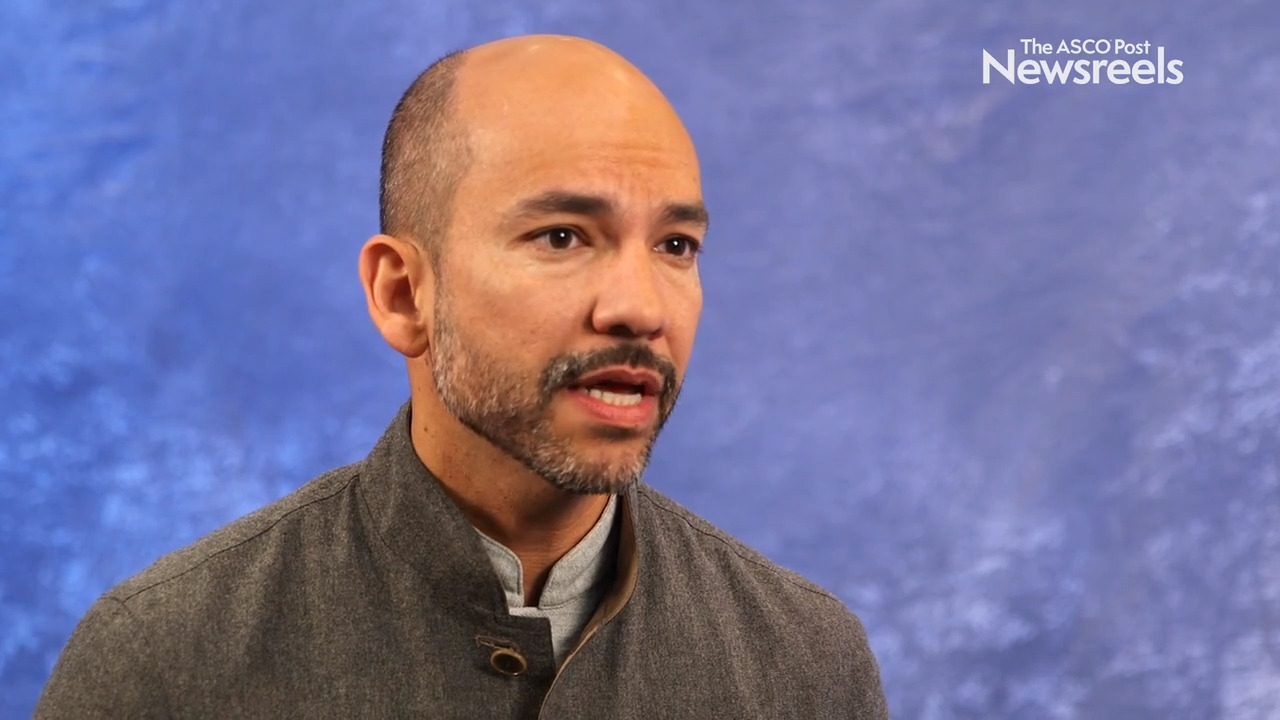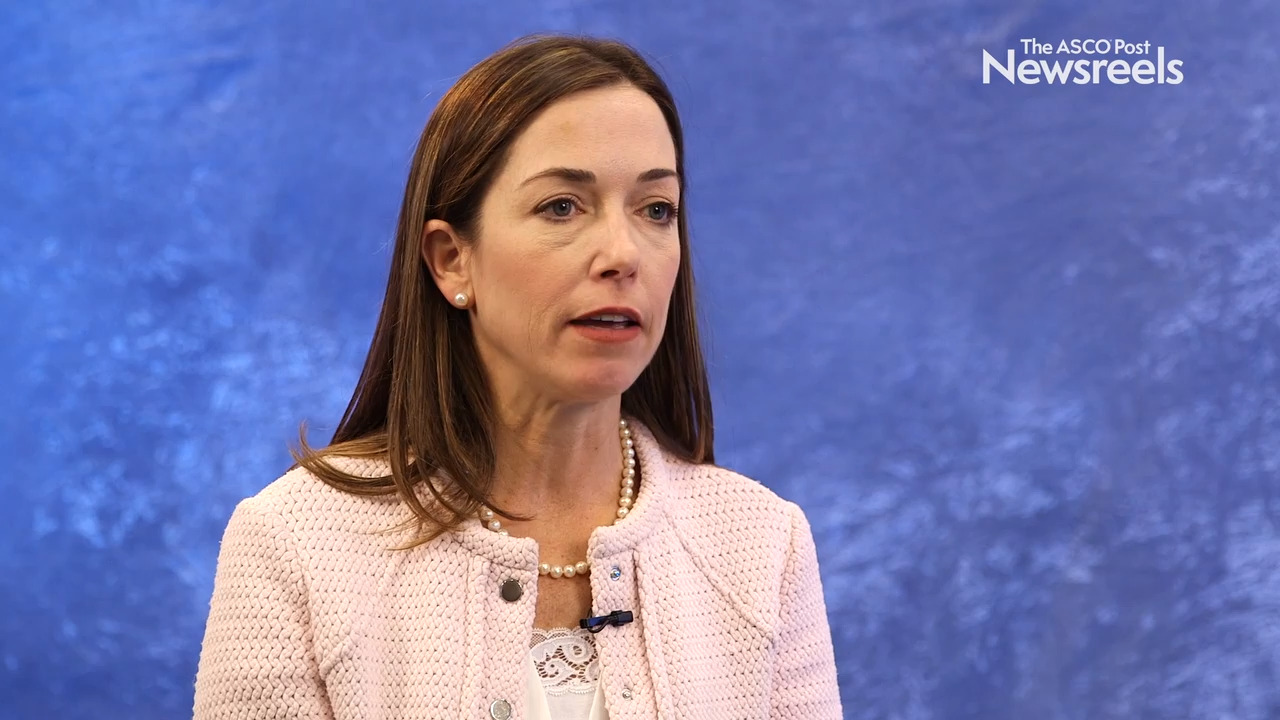Karim Fizazi, MD, PhD, on the ARAMIS Trial in Prostate Cancer: Impact of Darolutamide on Pain and Quality of Life
2019 ASCO Annual Meeting
Karim Fizazi, MD, PhD, of the Institut Gustave Roussy, University of Paris-Sud, discusses study findings showing that not only does darolutamide prolong metastasis-free survival, it maintains quality of life as well as delays worsening of pain and disease-related symptoms compared with placebo for patients with nonmetastatic castrate-resistant prostate cancer (Abstract 5000).
Toni K. Choueiri, MD, and Ziad Bakouny, MD, both of Dana-Farber Cancer Institute, discuss a retrospective review of genomically profiled patients with sarcomatoid/rhabdoid renal cell cancer who were found to have better outcomes with immune checkpoint inhibitors and to harbor mutations associated with poor prognosis (Abstract 4514).
Gilberto Lopes, MD, MBA, of the Sylvester Comprehensive Cancer Center at the University of Miami, offers commentary on phase III findings from the RELAY study, which showed that erlotinib plus ramucirumab led to superior progression-free survival in previously untreated patients with EGFR mutant–positive NSCLC (Abstract 9000).
Neeraj Agarwal, MD, of Huntsman Cancer Institute, University of Utah Health Care, and Thomas W. Flaig, MD, of the University of Colorado, discuss phase II findings on a novel predictive biomarker of response to the two accepted neoadjuvant regimens for muscle-invasive bladder cancer: methotrexate/vinblastine/doxorubicin/cisplatin and gemcitabine/cisplatin (Abstract 4506).
Sara A. Hurvitz, MD, of the David Geffen School of Medicine, University of California Los Angeles, discusses 3-year outcomes from the first phase III study to test a non-conventional regimen for the neoadjuvant and adjuvant treatment of HER2-positive breast cancer (Abstract 500).
Don S. Dizon, MD, of the Lifespan Cancer Institute, and Matthew A. Powell, MD, of Washington University School of Medicine, discuss phase III findings on paclitaxel plus carboplatin vs paclitaxel plus ifosfamide in chemotherapy-naive patients with stages I to IV, persistent or recurrent carcinosarcoma of the uterus or ovaries (Abstract 5500).





